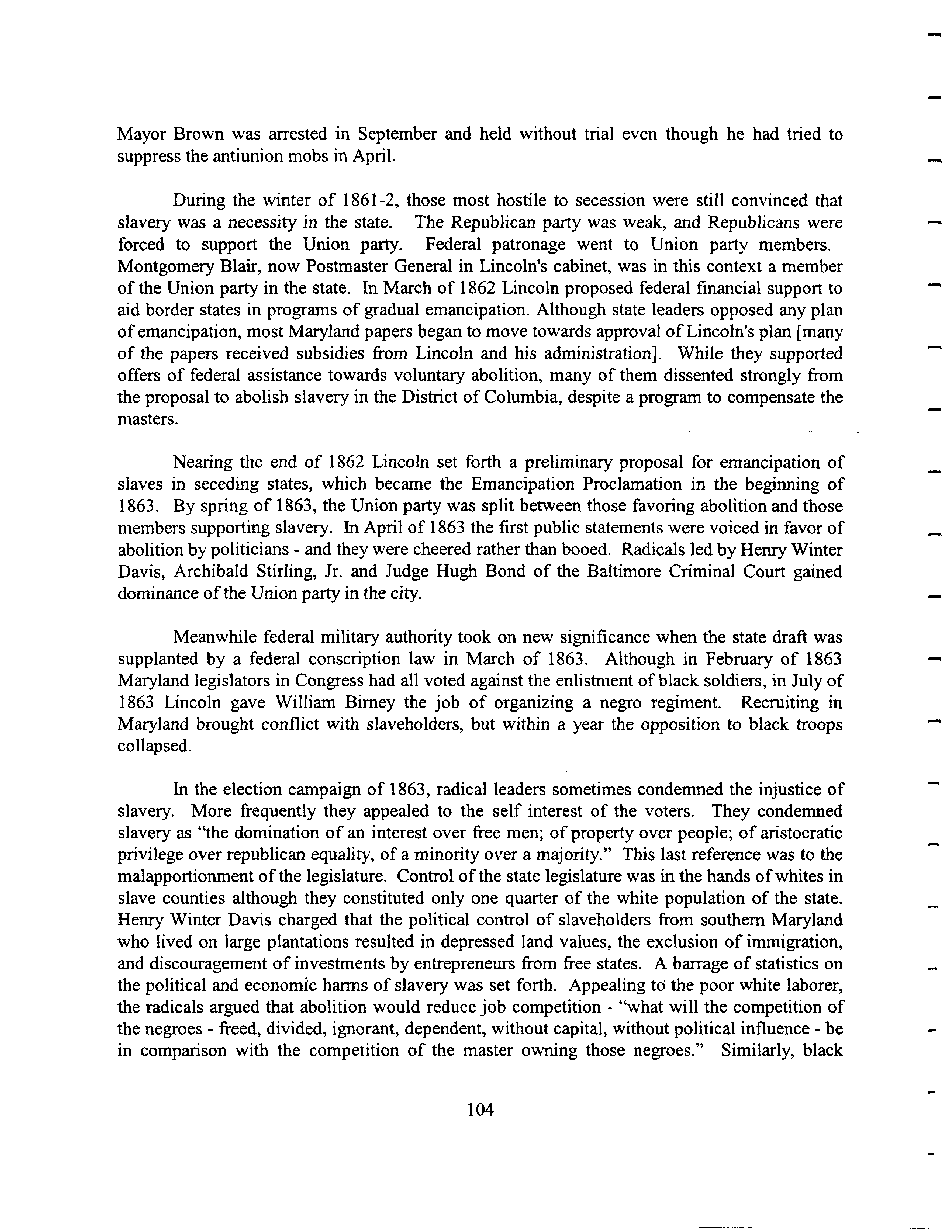|
Mayor Brown was arrested in September and held without trial even though he had tried to
suppress the antiunion mobs in April.
During the winter of 1861-2, those most hostile to secession were still convinced that
slavery was a necessity in the state. The Republican party was weak, and Republicans were
forced to support the Union party. Federal patronage went to Union party members.
Montgomery Blair, now Postmaster General in Lincoln's cabinet, was in this context a member
of the Union party in the state. In March of 1862 Lincoln proposed federal financial support to
aid border states in programs of gradual emancipation. Although state leaders opposed any plan
of emancipation, most Maryland papers began to move towards approval of Lincoln's plan [many
of the papers received subsidies from Lincoln and his administration]. While they supported
offers of federal assistance towards voluntary abolition, many of them dissented strongly from
the proposal to abolish slavery in the District of Columbia, despite a program to compensate the
masters.
Nearing the end of 1862 Lincoln set forth a preliminary proposal for emancipation of
slaves in seceding states, which became the Emancipation Proclamation in the beginning of
1863. By spring of 1863, the Union party was split between those favoring abolition and those
members supporting slavery, hi April of 1863 the first public statements were voiced in favor of
abolition by politicians - and they were cheered rather than booed. Radicals led by Henry Winter
Davis, Archibald Stirling, Jr. and Judge Hugh Bond of the Baltimore Criminal Court gained
dominance of the Union party in the city.
Meanwhile federal military authority took on new significance when the state draft was
supplanted by a federal conscription law in March of 1863. Although in February of 1863
Maryland legislators in Congress had all voted against the enlistment of black soldiers, in July of
1863 Lincoln gave William Birney the job of organizing a negro regiment. Recruiting in
Maryland brought conflict with slaveholders, but within a year the opposition to black troops
collapsed.
hi the election campaign of 1863, radical leaders sometimes condemned the injustice of
slavery. More frequently they appealed to the self interest of the voters. They condemned
slavery as "the domination of an interest over free men; of property over people; of aristocratic
privilege over republican equality, of a minority over a majority." This last reference was to the
malapportionment of the legislature. Control of the state legislature was in the hands of whites in
slave counties although they constituted only one quarter of the white population of the state.
Henry Winter Davis charged that the political control of slaveholders from southern Maryland
who lived on large plantations resulted in depressed land values, the exclusion of immigration,
and discouragement of investments by entrepreneurs from free states. A barrage of statistics on
the political and economic harms of slavery was set forth. Appealing to the poor white laborer,
the radicals argued that abolition would reduce job competition - "what will the competition of
the negroes - freed, divided, ignorant, dependent, without capital, without political influence - be
in comparison with the competition of the master owning those negroes." Similarly, black
104
�
|

